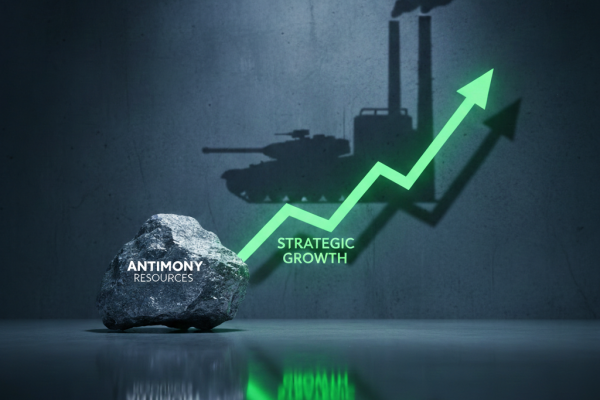April 14th, 2021 | 11:45 CEST
BYD, Defense Metals, Plug Power - China first!
Cars are to run on electricity, trucks are to be powered by hydrogen, and in the future, wind turbines, solar panels and hydroelectric power plants will generate the electricity. All well and good, but beware, dear climate activists, wind, solar energy and electromobility require mineral raw materials that also leave an ecological footprint when they are extracted. These raw materials are not produced in our country, but almost 80% in China. Due to the Middle Kingdom's demand and the ongoing trade war, the Western world is threatened by a shortage of resources, which endangers the well-intentioned but poorly prepared energy transition.
time to read: 3 minutes
|
Author:
Stefan Feulner
ISIN:
CNE100000296 , CA2446331035 , US72919P2020
Table of contents:
Author
Stefan Feulner
The native Franconian has more than 20 years of stock exchange experience and a broadly diversified network.
He is passionate about analyzing a wide variety of business models and investigating new trends.
Tag cloud
Shares cloud
Enormous dependence
China is the world's largest market for electric cars. Domestic demand continues to grow tremendously. Chinese electric carmakers BYD, Nio, Xpeng and Li Auto all achieved triple-digit growth rates in the electric car segment last year. Now, the government issued a new directive last month, further tightening regulation on the production of rare earth metals. The goal, it said, is to develop and preserve these resources to meet rising domestic demand and protect the strategic resource amid intensifying global competition. Rare earth metals, also known as "industrial gold," are a group of 17 chemical elements that find their applications in medicine, renewable energy, permanent magnets in electric motors, or batteries in cell phones or laptops. The raw materials are also extremely important for the defense industry.
Sharper tone between China and the USA
The trade war that got underway under the Trump administration continues under new President Joe Biden. China set up export controls on rare earth metals to slow the production of US fighter jets. Likewise, a blacklist is to be created, listing primarily defense companies such as Lockheed Martin, Boeing and Raytheon, which are supplying arms to Taiwan. The US alone invested about USD 1.2 trillion in defense last year. To ensure a secure supply chain for rare earth metals outside of China, the US, Japan, Australia, and India want to work together. However, as there are currently few rare earth metal projects ex-China, dependence on the existing supply chain is likely to remain for the next 10 years.
Few existing alternatives
While projects are increasingly being launched in Australia and the US, the number of companies already underway is scarce. One of the most promising projects is being run by Canadian mineral explorer Defense Metals, focusing on its 1,708-hectare Wicheeda rare earths project near Prince George in British Columbia. According to company data, mineral resources there are 4.9 million tons at an average grade of 3.02% LREO (light rare earth metals) and inferred mineral resources of 12.1 million tons at an average grade of 2.90% LREO. Within four years, the resources and consequently the value of the deposit have almost doubled. The project offers outstanding infrastructure and stands out with low pilot and drilling costs.
Consistently good news flow
For weeks, Defense Metals has been shining with consistently good news. In early March, very positive results were reported in hydrometallurgical tests with flotation concentrating in advance of the pilot study with a high impurity precipitation rate with minimal loss of rare earths. The next objective is to complete the hydrometallurgical pilot plant. A drilling program to further upgrade and increase the deposit's size is also scheduled to begin in the third quarter.
Earlier this week, management announced that two of the world's leading companies involved in smelting and separating rare earth elements (SEE) had requested samples of SEE mineral concentrate from Wicheeda for testing. Craig Taylor, CEO of Defense Metals, confirms the growing international demand for easily accessible, high-quality, North American SEE products. The Company currently has a market capitalization of only EUR 16.48 million. The market has not yet recognized the potential of this Company.
End of the correction?
It smells like bottoming out for Chinese automaker BYD. The support line at around EUR 18.0 was successfully tested several times. A breakout above the EUR 19.60 mark would give the chart some room to move upwards again. The next price target then lies at around EUR 22.0. On the fundamental side, BYD could announce the start of production of the SkyRail passenger transport system to construct a monorail line in the Brazilian region of Bahia. SkyRail is designed to connect communities while boosting the economy and tourism in the Brazilian state of Bahia.
Worse threatens to come
The important support level of USD 30 has been breached. The trigger was a critical statement by an analyst from Morgan Stanley on Monday. Thus, the price target was set at USD 35 and the rating at "equal weight." Much of the expected growth is already included in the price, said the expert. In chart terms, should the price continue to deflate today in the course of trading, the 200-day line at currently USD 27.70 is a glimmer of hope. Otherwise, a crash towards USD 20 could take place. Due to the oversold condition, we see a speculative trading opportunity against the trend in the short term.
Conflict of interest
Pursuant to §85 of the German Securities Trading Act (WpHG), we point out that Apaton Finance GmbH as well as partners, authors or employees of Apaton Finance GmbH (hereinafter referred to as "Relevant Persons") may in the future hold shares or other financial instruments of the mentioned companies or will bet on rising or falling on rising or falling prices and therefore a conflict of interest may arise in the future. conflict of interest may arise in the future. The Relevant Persons reserve the shares or other financial instruments of the company at any time (hereinafter referred to as the company at any time (hereinafter referred to as a "Transaction"). "Transaction"). Transactions may under certain circumstances influence the respective price of the shares or other financial instruments of the of the Company.
Furthermore, Apaton Finance GmbH reserves the right to enter into future relationships with the company or with third parties in relation to reports on the company. with regard to reports on the company, which are published within the scope of the Apaton Finance GmbH as well as in the social media, on partner sites or in e-mails, on partner sites or in e-mails. The above references to existing conflicts of interest apply apply to all types and forms of publication used by Apaton Finance GmbH uses for publications on companies.
Risk notice
Apaton Finance GmbH offers editors, agencies and companies the opportunity to publish commentaries, interviews, summaries, news and etc. on news.financial. These contents serve information for readers and does not constitute a call to action or recommendations, neither explicitly nor implicitly. implicitly, they are to be understood as an assurance of possible price be understood. The contents do not replace individual professional investment advice and do not constitute an offer to sell the share(s) offer to sell the share(s) or other financial instrument(s) in question, nor is it an nor an invitation to buy or sell such.
The content is expressly not a financial analysis, but rather financial analysis, but rather journalistic or advertising texts. Readers or users who make investment decisions or carry out transactions on the basis decisions or transactions on the basis of the information provided here act completely at their own risk. There is no contractual relationship between between Apaton Finance GmbH and its readers or the users of its offers. users of its offers, as our information only refers to the company and not to the company, but not to the investment decision of the reader or user. or user.
The acquisition of financial instruments entails high risks that can lead to the total loss of the capital invested. The information published by Apaton Finance GmbH and its authors are based on careful research on careful research, nevertheless no liability for financial losses financial losses or a content guarantee for topicality, correctness, adequacy and completeness of the contents offered here. contents offered here. Please also note our Terms of use.




